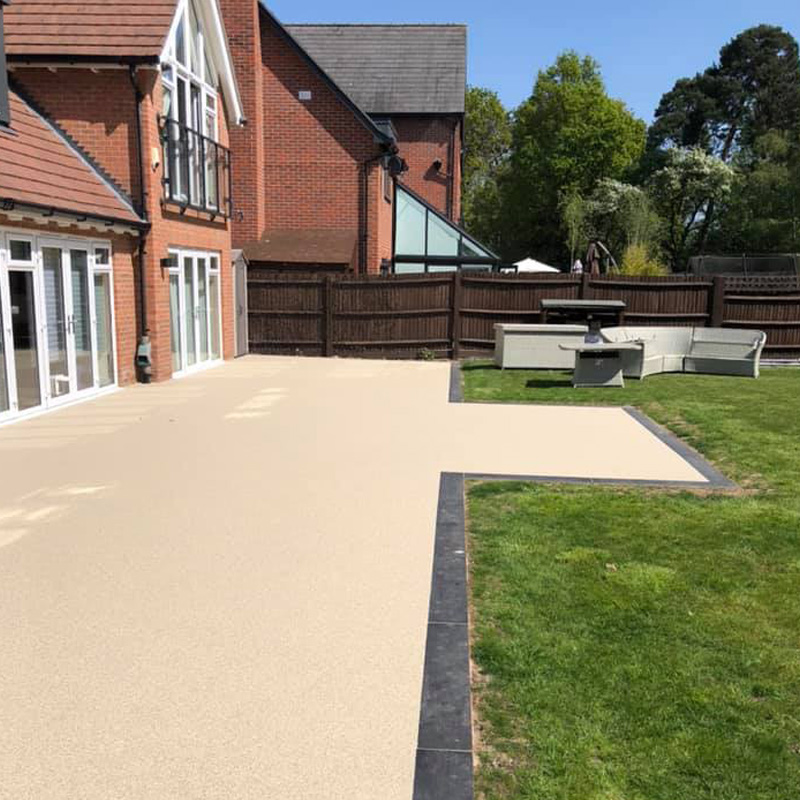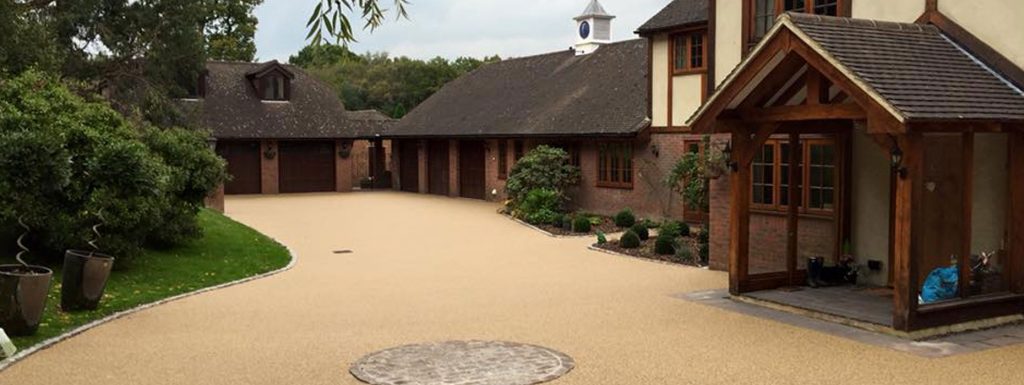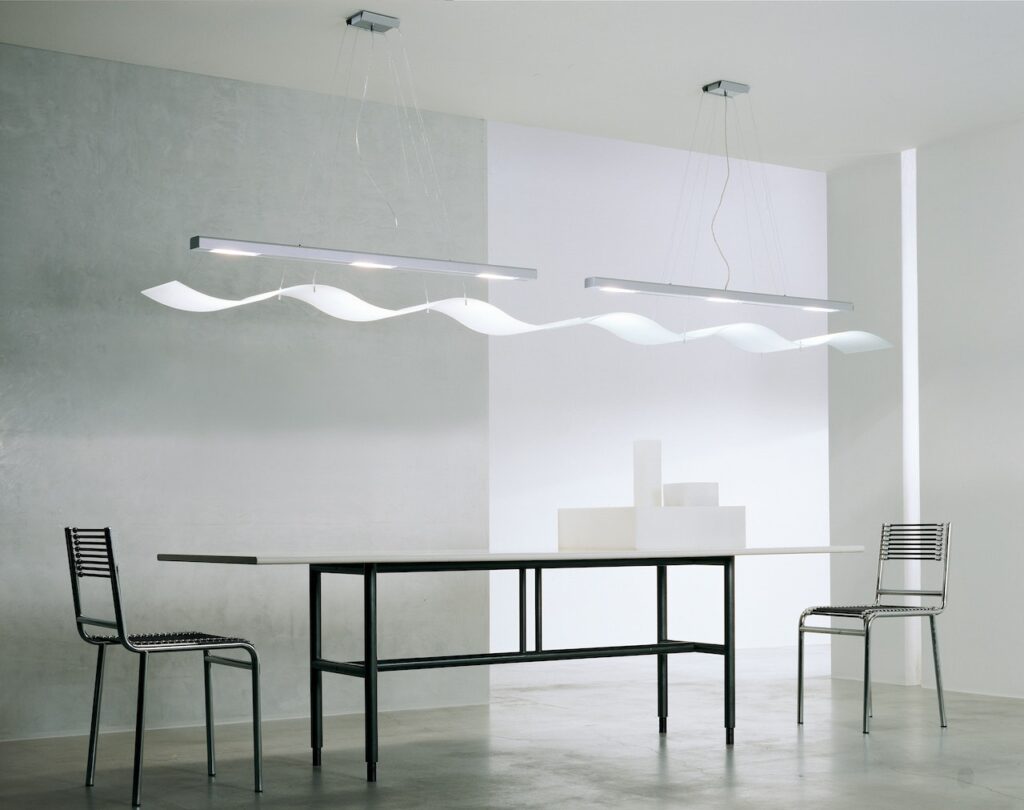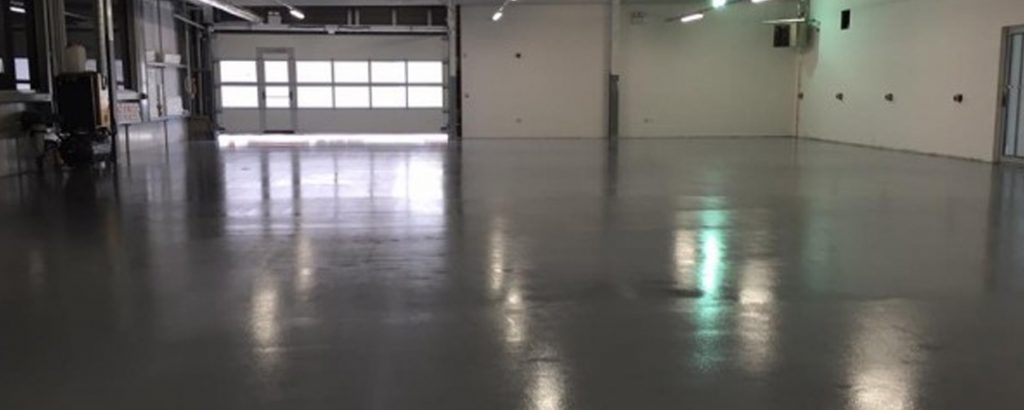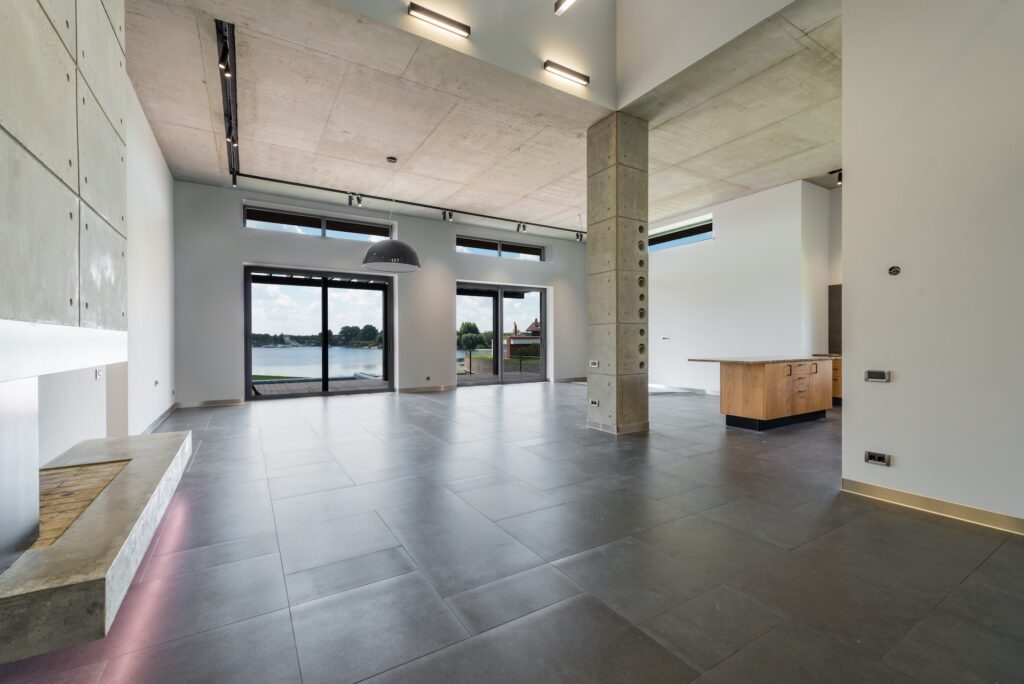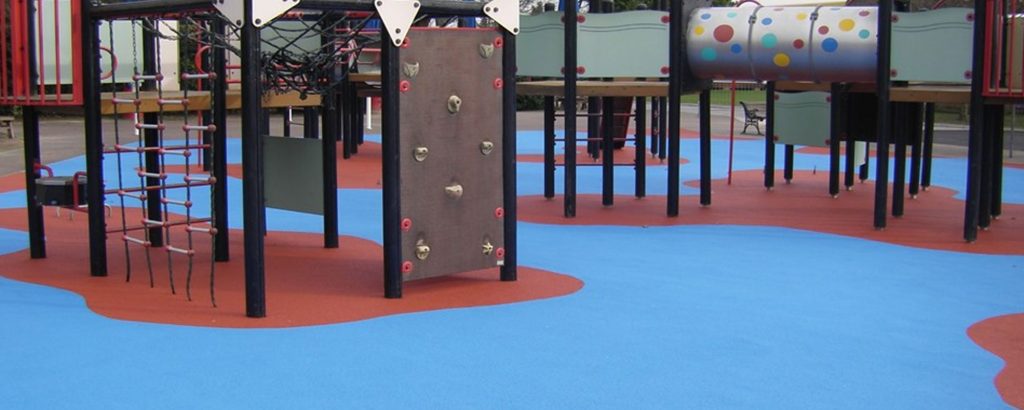If you’re considering building a new patio, you’ve probably scoured the internet for information on all your options. Maybe you’ve even reached out to your neighbours and friends to see what they recommend. You’ll quickly notice that most of the information you find will be related to traditional patio materials like paver stones, concrete, and wood. We’re here to discuss and offer another option: resin. We’ll also address the common issues with traditional materials and how a resin patio compares in its longevity, durability, and cost.
Looking for a free resin patio quote?
Fill out our contact form with more details about your patio and we’ll get in touch with a more accurate, no-obligation patio cost.
Common issues with traditional materials
Concrete
Concrete is arguably the most ordinary patio or driveway material out there. It’s ubiquitous because it’s highly durable, relatively cost-effective, and can last many years if maintained properly. However, concrete does have its drawbacks. Firstly, as durable as it is, it’s not very aesthetically-pleasing unless you stamp and stain it. Stamping offers a nice textured appearance but requires a significant additional investment – while staining can result in the concrete being slippery when wet. Secondly, concrete tends to crack and move over time when exposed to the natural freezing and thawing cycles of the seasons. And after a concrete pad has cured in place, you cannot fix surface imperfections without cutting out a patch or demolishing the whole project. Lastly, salt can be detrimental to both naked and stained concrete. This means that if you live in a cold region, you’ll have to use less-effective alternatives to remove ice and snow from your patio or driveway in the winter.
Pavers
Pavers can provide a beautiful alternative to concrete. With their interlocking placement, homeowners can get creative with a myriad of different layouts, patterns, and designs. However, like any construction material – pavers can have a host of issues. Firstly, they can be expensive and labour-intensive to install. Proper installation is paramount to preventing a host of problems down the line. Secondly, improperly installed pavers can result in sinking, loose stones, or uneven surface areas – which can be unsightly and hazardous. Lastly, since pavers have seams that are filled with porous sand, they’re a great place for weeds to grow. Some weeds can grow thick roots that may require removal of paver bricks to remedy.
Wood
Wood decks are a classic outdoor alternative to stone patios. They offer a certain natural charm that is hard to achieve with stone materials. If properly maintained, they can last for many years and are light enough to create multi-story outdoor living spaces. Wood decks also have some common pitfalls. Firstly, they are subject to water damage. For this reason, decks must be sealed (and resealed) regularly to prevent the wood’s natural absorption of water. Wood also tends to fade and rot, which can make your deck both unattractive and highly dangerous. Deck users can fall through rotted boards or railings, so home and business owners should be careful to remedy any sign of rot immediately. Lastly, wood tends to shrink over time, causing gaps in the board placement. Eventually, you’ll have to replace planks to maintain the appeal and safety of your deck.
How resin bound patios compare
Resin bound patios are a relatively new frontrunner on the patio scene. With its incredible durability, unmatched longevity, and comparably low cost, resin patios are an excellent alternative for anyone willing to think outside the box. Resin bound also offers customizable options that are either unavailable or too expensive to entertain with other patio materials. Want your family crest, company logo, or initials on your hardscape? Resin bound offers you that option. Want to make a quick change to your yard? Few patio materials can be installed in less time, with less prep. With that said, let’s discuss how resin stacks up against each traditional material.
Resin bound VS concrete
Resin patios offer various colours and textures that aren’t available in concrete without expensive staining and stamping. And unlike stained concrete, resin bound patios can withstand most common snow and ice removal techniques. Resin bound patios will also not swell and shrink in response to weather changes, which means the patio you lay today will be the same patio you see year after year.
Resin bound VS patio pavers
Resin bound is much easier to install than traditional patio pavers. Pavers require extensive preparation and results can depend on the quality of the soil. Resin bound patios can be installed much quicker and can easily work around drainage or soil issues that would be destructive with pavers. Resin bound provides the same gorgeous design elements as pavers, with colours that will not fade. In addition, resin bound patios will not grow weeds! In fact, many people pair their resin patio with artificial grass to avoid the drawbacks of regular watering and weed growth.
Resin bound VS wood decking
For all its charm, most people understand that wood is not nearly as durable as resin. Wood is also very high maintenance, requiring staining every 2 to 3 years to maintain its appearance and functionality. Once resin is installed, it requires very little upkeep and can significantly outlive a wood deck. To keep it clean, you’ll simply spray your resin bound patio down with water, and sweep (or brush) away any organic materials like fallen leaves. Like wood, resin can be scratched if sharp, heavy objects are dragged across the surface – so it’s recommended to avoid such actions. Also, resin bound patios can occasionally grow moss or algae. Periodic application of a moss or algae killer will remove and prevent any issues.
The smart choice
In the end, it’s clear to see how resin stacks up against its traditional counterparts. Choosing your patio material will always be a matter of personal preference. However, it’s worth noting that resin can mimic most traditional materials’ design and functionality, often at a lower cost. The durability of resin ranks it high on the list of options, making it a wise choice for any discerning business or homeowner.
